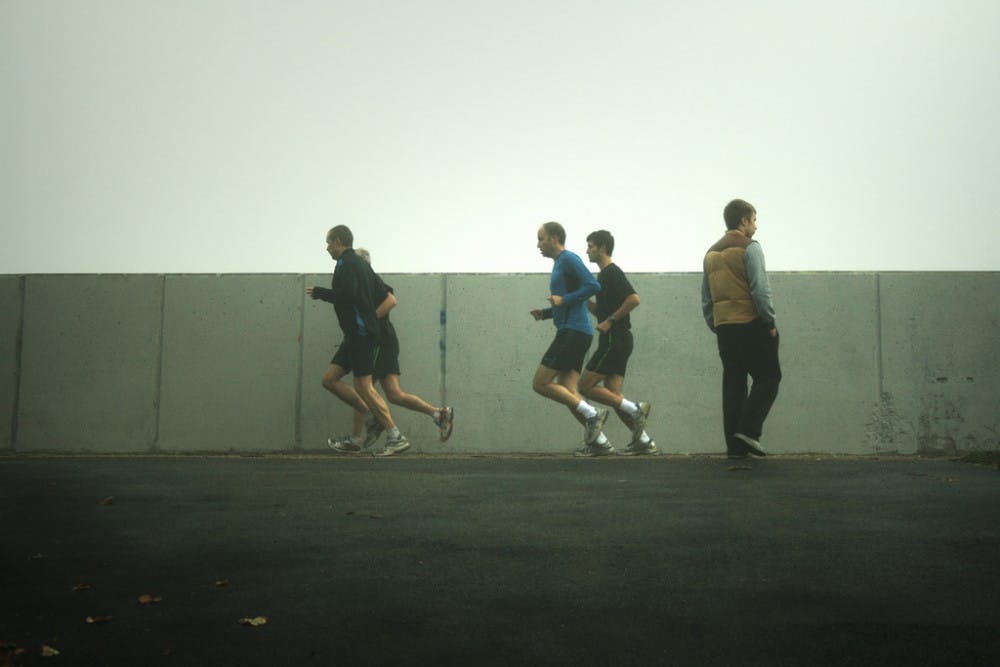
“I looked back and I remembered a time in my life between ages 9 to 11 when I was a bit on the antisocial side,” Raine said.
Credit: Courtesy of Petras Gagilas/Creative CommonsThe clues to a murder mystery may be in a suspect’s head all along.
Criminology Department Chair Adrian Raine is a pioneer in neurocriminology, a branch of criminology that explores the application of neuroscience techniques in understanding crime and violence.
Raine’s inspiration to study neurocriminology stems from his own rambunctious childhood experiences.
“I looked back and I remembered a time in my life between ages 9 to 11 when I was a bit on the antisocial side,” Raine said. During that time, he would engage in fights and even let out car tires.
“I could connect to not caring and fighting. I could connect to thrill seeking ... and I thought to myself, well I could have been on that road but somehow I got off,” Raine said. Although he had turned himself around by his teenage years, Raine continued to wonder what had driven his previous mischief.
Originally, Raine wanted to become a schoolteacher, but looking back at his childhood, he was inspired to take his studies in a new direction. Still, he did not have to sacrifice working with children — he studies childhood factors in criminal tendencies.
The field of neurocriminology was budding when Raine entered the professional world. After receiving his doctorate from the University of York in England, Raine submitted 67 job applications, all of which resulted in rejections. His 68th application, however, earned him a job as professor at the University of Nottingham.
Today, Raine has been researching neurocriminology for 37 years, during which he has completed various research projects exploring the socio-biological factors of crime. One experiment in particular from 1994, which he considers a starting point for his research, explored the cognitive effects of birth complications and maternal rejection on criminal tendencies in later stages of life.
After following a group of over 4,000 live male births for 18 years, Raine found that babies separated from their parents for prolonged periods of time during the first year of life or faced an unwelcome maternal reaction, along with birth complications, were three times more likely to commit violent crimes when they grew up compared to groups that had only one or neither of these issues. This suggested that a combination of social and genetic factors leads to criminal behavior.
Raine has also done brain imaging work and has found that criminal brains typically have some distinct features.
Raine found that when the prefrontal cortex — the area of the brain that is involved with checking impulsive behavior and controlling emotions — was damaged by either genetic or environmental factors like shaken baby syndrome or a head injury, an individual was more likely to demonstrate bad decision-making, blunting of emotion and psychopathic personality, leading to a lack of consideration for moral issues.
“If you are not empathic and you don’t have feelings for others, you can imagine that you’re more likely to go out and rob someone because you’re not thinking of others. You’re just thinking of yourself,” Raine said.
In addition, Raine found that psychopaths’ amygdalae — the area of the brain that generates emotions like fear and controls moral decision-making — were physically shrunken by 18 percent. This shrinkage can be either genetic or caused by the environment. Psychopaths are more likely to have been brought up in homes where they do not develop normal social relationships in early life. Raine’s research showed that this neglect can lead to physical shrinkage of that area of the brain, which results in rash actions without consideration of repercussions.
“Coming from England, I like to think that the Beatles were always right,” Raine said of this research. “All you need is love.”
Raine said neurocriminological research brings up questions on the moral culpability of criminals and has been increasingly prevalent in the courtroom.
“Psychopaths know it’s wrong to kill ... But do they have the feeling, the moral feeling of what is right and wrong?” Raine said. “From our work and brain imaging on psychopaths during moral decision making, we’ve suggested that psychopaths lack the feeling for what is right and wrong and if you lack the feeling of what is right and wrong, well maybe you’ll do the wrong thing ... because emotion and feeling are the engine that drives moral behavior.”
He added that it poses a moral dilemma between punishing people for factors beyond their control and holding them responsible for their harmful actions.
“If the causes of terrible behavior are produced by factors beyond an individual’s control ... then can we blame them?” Raine said. “On the other hand, we don’t want excuses for crime, we want responsibility. We want retribution.”
Raine stressed that his research impacts communities far beyond Philadelphia, which is why he published a book titled “The Anatomy of Violence” in 2013. Currently, Raine is working on a television series for PBS entitled, “A Crime to Remember.”
The Daily Pennsylvanian is an independent, student-run newspaper. Please consider making a donation to support the coverage that shapes the University. Your generosity ensures a future of strong journalism at Penn.
DonatePlease note All comments are eligible for publication in The Daily Pennsylvanian.





